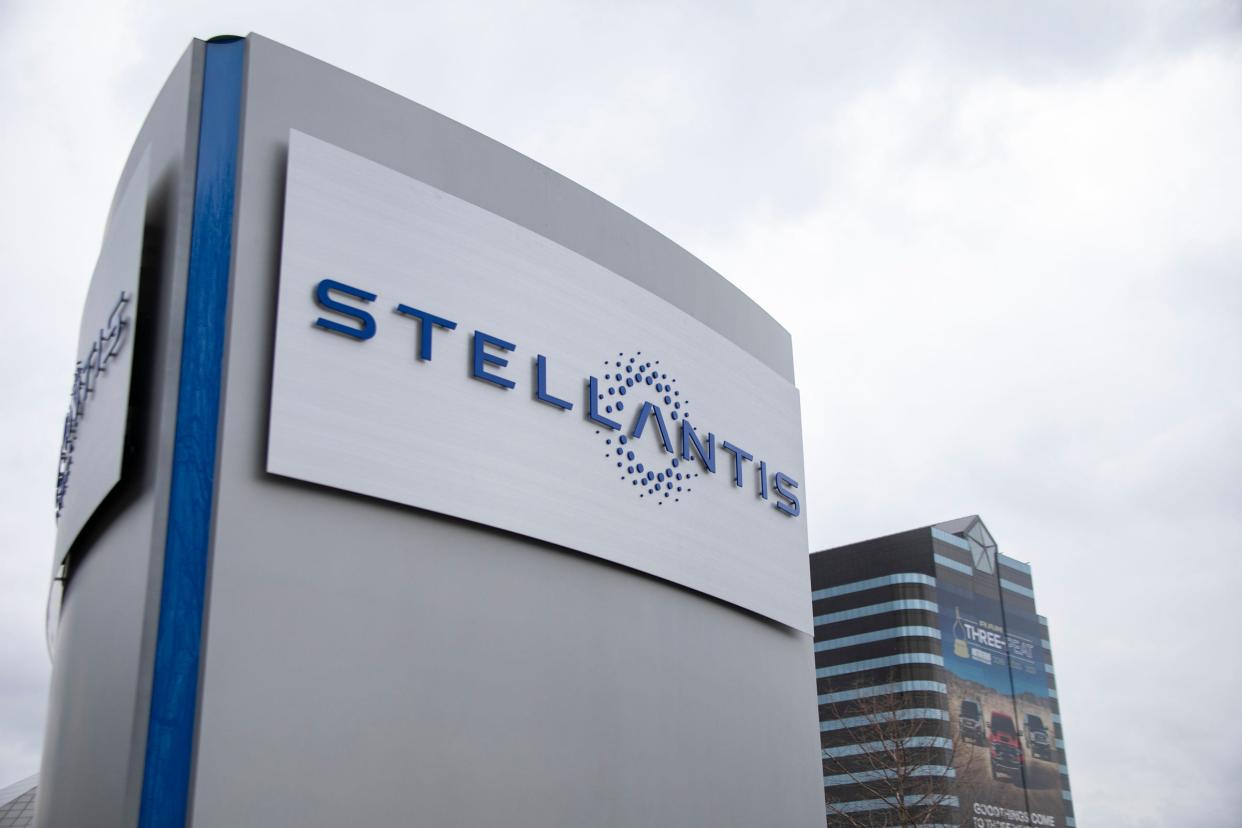Stellantis, Canadian government in dispute over battery plant commitments

Unifor, the union representing Canadian autoworkers, is pressing for swift government action after Jeep- and Chrysler-parent Stellantis said it had halted construction at an electric vehicle battery plant in Windsor over a dispute related to subsidies for the almost $4 billion project.
Unifor National President Lana Payne painted the situation in stark terms in a news release Monday.
More: Stellantis wants to cut 3,500 hourly jobs, offer buyouts ‘corporate wide’
"It's outrageous that tens of thousands of jobs are in jeopardy due to a failure to come to terms on government investment. The situation is as serious as it gets. This needs to be resolved immediately to preserve workers' livelihoods and construction of the EV plant can resume," Payne said in the release.
The union said that "companies like Stellantis don't make threats, they make decisions" and that "once those decisions get to a certain point ... they are very hard to reverse."
Stellantis, which also owns the Ram, Dodge and Fiat brands, provided a statement, saying that the Canadian government "has not delivered on what was agreed to" and that Stellantis and its partner in the project, LG Energy Solution, would implement "contingency plans," without elaborating. The statement said all construction related to battery module production at the site had stopped.
More: UAW, Stellantis execs play blame game as automaker cuts jobs to make up for EV costs
It wasn't clear what specific financial commitment that the Canadian government was accused of failing to meet. A message seeking comment was sent to the office of Prime Minister Justin Trudeau.
Laurie Bouchard, a spokesperson for Francois-Philippe Champagne, Canada's minister of Innovation, Science and Industry, provided a statement on the situation, indicating that negotiations are ongoing:
“The auto industry is crucial to the Canadian economy and to the hundreds of thousands of Canadian workers in this sector. That's why Minister Champagne has worked tirelessly to secure the future of Canada's auto industry. We continue to negotiate in good faith with our partners. Our top priority is and remains getting the best deal for Canadians.”
In a tweet Monday evening, Champagne highlighted the role of Ontario's government in the situation:
"We've always said we will be competitive with the U.S. when it comes to the auto sector. But we need to work together at all levels of government. What we now need is for Ontario to pay its fair share. Full stop. Windsor is a key place to build our EV ecosystem."
A message seeking comment was sent to spokespeople for Ontario Premier Doug Ford. He has previously said that hundreds of millions of dollars in public support was being put toward the project.
Unifor, which had previously warned that the two sides were playing a "high stakes game," said the company reportedly wants the Canadian government to match a $9.8 billion ($13.2 billion Canadian) investment being made in Volkswagen's planned EV battery cell plant in St. Thomas, Ontario.
More: Ram enlists ‘Detroiters’ star to poke fun at electric pickup competitors in new ad
The (Toronto) Globe and Mail reported Monday that "the federal subsidies to Volkswagen were intended to allow Canada to compete with the United States, where the Inflation Reduction Act added production subsidies for batteries."
When the union was asked for more specifics on the commitment and Stellantis' contention that the government hadn't met its obligation, Payne said in a statement that "it’s our understanding that Stellantis believed it had a deal back in February and now we need a signed deal between the company and the government so that construction of the EV plant can resume.”
When the Stellantis battery plant was announced in March 2022, the company said it would create 2,500 new jobs, although the presence of the plant would be expected to have significant spinoff impacts. Production at the 220-acre, 4.5-million-square-foot plant had been expected to launch in the first quarter of 2024.
Contact Eric D. Lawrence: elawrence@freepress.com. Become a subscriber.
This article originally appeared on Detroit Free Press: Stellantis, Canadian government at odds over battery plant support

